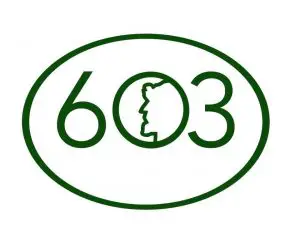Sales Taxes in the U.S. are not subject to federal regulation.
This means that control of base sales tax rates are controlled by each state. Sales tax is usually imposed on every retail transaction and some services.
Sales tax factors into making both large and small purchases, as it increases the final amount you pay for goods and services.
The main reason states have a sales tax rate is to help them generate revenue for the state’s operation costs.
There are certain counties and municipalities that impose additional surtaxes on top of base sales taxes.
The sales tax rate in New York state is 4% and New York City has additional tax rates which, when combined with the state tax rate, makes the rate closer to 9%.
Certain goods could be exempt from a state’s general sales tax, groceries, prescription/non-prescription drugs for example.
However, these goods are likely to be taxed under local sales tax regulations.
Does New Hampshire Have A Sales Tax?
There are currently five states that have a 0% sales tax rate.
Delaware, Montana, Alaska, Oregon, and New Hampshire do not have state sales tax.
However, each of these states regulates its own excise taxes, income taxes, and taxes on tourist destinations.
So, while these states, including New Hampshire, have a 0% sales tax rate they use other forms of taxation more heavily.
On this note, it’s worth remembering that even though the states above including New Hampshire do not impose a sales tax, this doesn’t always mean that these are the best states for low taxes.
Is There A Trade-Off?
States that do not impose a sales tax, like New Hampshire, often use other types of taxation as a trade-off.
Tourists and out of town visitors stand to gain the most from New Hampshire’s lack of sales tax.
However, residents in the state are hit hard by other forms of tax.
In the case of New Hampshire, the real estate tax bracket is one of the highest in the country (see also ‘The Most Expensive Homes In New Hampshire‘). If you were purchasing a property in NH it’s vital that you consider the median property tax rate.
This tax rate is $2,129 for every $100,000 of home value.
What about the income tax range?
Well, NH doesn’t impose income taxation.
Again, the trade-off is that there is currently a 5% tax on interest and dividends that exceed $2,400 ($4,800 for joint filers).
Are There Exceptions In NH On The 0% Sales Tax?
There is currently a 9% sales tax in NH on prepared meals in restaurants, along with the same rate on short-term room rentals, and car rentals.
A 7% tax on phone services also exists in NH.
Whilst tourists save money on shopping because of the 0% sales tax on goods purchased in stores, they will pay more for the services above.
Chances are if you are visiting New Hampshire, you will need to eat in a restaurant, rent a room, or rent a car. So it’s worth taking these additional tax costs into consideration when planning your budget for your stay in NH.
What About Excise Taxes In New Hampshire?
There are currently excise taxes on the sales of both tobacco and electricity.
That beings said, business to business transactions (B2B) are exempt from paying both of these excise taxes, if the purchaser intends to resell the products.
There are no excise taxes on the purchase of liquor in New Hampshire.
NH is also one of the few states that doesn’t charge a sales tax on vehicle purchases. So when it comes to registering your vehicle in NH, you will not pay any sales tax.
New Hampshire also has a timber tax. This is imposed at the time the tree is cut at 10% the value of the wood.
Is New Hampshire A Tax-Friendly State For Retirees?
You might be wondering if New Hampshire is tax friendly towards retirees. As we’ve mentioned, there is no personal income tax charges in NH, which means that if you collect Social Security retirement benefits, this is tax-free at a state level.
What’s more, your income from a pension and/or retirement accounts are not taxed in New Hampshire. Coupled with the fact that there is no sales tax, inheritance tax, or estate tax means that New Hampshire is very tax friendly for retirees.
Conclusion
New Hampshire is generally known as a low-tax state.
When comparing the tax policy of NH with somewhere like Maine, it’s undeniable that New Hampshire places a low tax burden on its citizens.
At 8.7 % of personal income, it’s the 49th highest in the U.S.
However, when comparing states in terms of their tax friendliness towards middle-class families, Wyoming takes the top spot.
For middle class families looking to move to New Hampshire, the tax picture is very mixed. What you might gain from not having to pay on certain taxes, you could lose having to pay others.
Whilst New Hampshire doesn’t have a sales tax, which at first glance makes a vacation in New Hampshire seem appealing, there are taxes on goods and services tourists will likely use.
The lack of a sales tax does make shopping in NH slightly more cost-effective, particularly if you’re a tourist/ out of state visitor.



